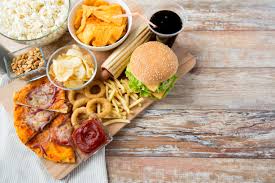What are the foods that people consider healthy but are actually unhealthy? Many foods marketed as healthy are often packed with hidden sugars, unhealthy fats, or other additives. Here are some common “healthy” foods that can actually undermine wellness if consumed frequently:
Granola:
While it often contains oats and nuts, many store-bought granolas are packed with sugar and oils that add up in calories and fat.
Smoothies and Fruit Juices:
Pre-made smoothies and bottled fruit juices often have added sugars, even if they’re labeled “all-natural.” Juicing also removes fiber, so these beverages can lead to quick blood sugar spikes.
Veggie Chips:
Though they’re made from vegetables, veggie chips are often fried, salted, and contain little fiber, making them nutritionally similar to potato chips.
Trail Mix:
Trail mix can be healthy, but many varieties are loaded with sugar-coated fruits, chocolate, and salted nuts, making it easy to consume excess sugar and fat.
Flavored Yogurts:
Many flavored yogurts contain high levels of added sugars, artificial flavoring, and are sometimes lower in protein than plain, whole yogurt.
Energy Bars and Protein Bars:
While convenient, many bars are essentially candy bars in disguise. They’re often high in sugar, preservatives, and artificial ingredients.
Low-Fat or Fat-Free Foods:
When fat is removed from products like salad dressings or yogurt, it’s often replaced with sugar and artificial ingredients to maintain flavor, making it less satisfying and potentially higher in calories overall.
Sushi Rolls:
While basic sushi (fish and rice) can be healthy, specialty rolls can include mayonnaise, cream cheese, and tempura, which add unhealthy fats and calories.
Gluten-Free Snacks:
While necessary for those with gluten intolerance, many gluten-free snacks are made with refined flours and added sugars, leading to fewer nutrients and fiber.
Fruit-Flavored Drinks and Vitamin Water:
These drinks often contain more sugar than soda, and the vitamins added don’t offset the negatives of high sugar content.
Focusing on whole, minimally processed foods can help you avoid these common traps. Preparing snacks and meals at home can be a good way to control ingredients, especially for nutrient density and natural flavors.









